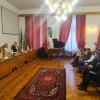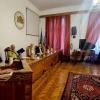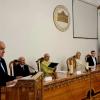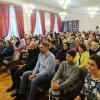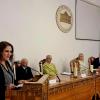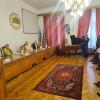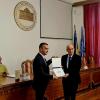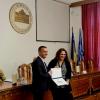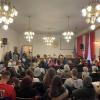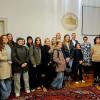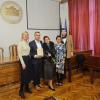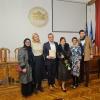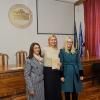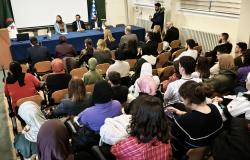Book “Bosnian Dialects at the End of the 19th Century” by Academician Senahid Halilović Promoted
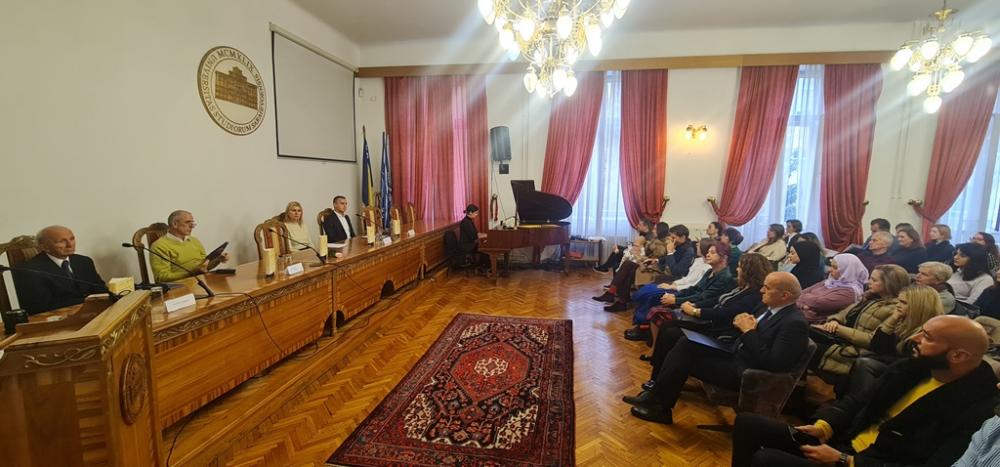
In the UNSA Ceremonial Hall, on 22 November 2023 the promotion of a book “Bosnian Dialects at the End of the 19th Century” by Academician Senahid Halilović was held.
Academician Senahid Halilović died suddenly on 24 April 2023, leaving behind 18 books printed in over 100,000 copies and over 100 scientific and professional works. Academician Senahid Halilović finished his last book, “Bosnian Dialects at the End of the 19th Century”, a month before he left us, handing it over to the editorial office of the Slavic Committee. The work is extremely important for Bosnian dialectology, linguistics, but also for the entire social and cultural community.
Namely, the book is based on material collected as part of a survey conducted by the Directorate of the Bosnia and Herzegovina Land Museum in the spring of 1897 using Rešetar's Questions on the Speech of the Common People. In the first part of the book, the dialect material containing 226 questionnaires from all parts of Bosnia and Herzegovina is processed, and in the second part, notes of the scribe on the peculiarities of Bosnian dialects are transcribed.
The book “Bosnian Dialects at the End of the 19th Century” was published by the Slavic Committee of Bosnia and Herzegovina and the Federal Ministry of Education and Science. The reviewers are Prof. Dr. Josip Baotić and Prof. Dr. Ivo Pranjković, and the editor is Prof. Dr. Mehmed Kardas.
At the promotion spoke: UNSA Rector, Prof. Dr. Rifat Škrijelj, Federal Minister of Education and Science, Prof. Dr. Jasna Duraković, professor emeritus dr. Josip Baotić, academician Prof. Dr. Rešid Hafizović, Prof. Dr. Amela Šehović and Prof. Dr. Mehmed Kardaš. The promotion was moderated by Assoc. Prof. Dr. Elma Durmišević.
“As we explore the pages of this important work, we are reminded of the enormous contribution that Academician Halilović made to linguistics, especially in his tireless efforts to standardize the Bosnian language. His legacy is not only reflected in the pages of his numerous publications, but also in the indelible mark he left on the work of the Slavic Committee. As was emphasized in the preparation of this meeting, under the leadership of Academician Halilović in the Slavic Committee, several dozen books were published, among which the “Bosnian Linguistic Atlas” stands out, as an edition that received special recognition from the University of Sarajevo,” said Rector Škrijelj in paying tribute to Academician Halilović.
Federal Minister of Education and Science Jasna Duraković pointed out that the book represents a great contribution to the academic community: “His systematic research and detailed analysis of materials from a linguistic and historical perspective undoubtedly contributed to our understanding of language. Recognizing the importance of this work for the entire scientific community, the Federal Ministry of Education and Science decided to financially support this edition.”
After the certificates of appreciation were presented to the University of Sarajevo and the Federal Ministry of Education and Science, professor emeritus Dr. Josip Baotić emphasized: “For me, Senahid tried the impossible, to revive what was once buried in order to awaken interests. This book, in a scientific sense, is a preliminary work for the creation of an atlas of speech in Bosnia and Herzegovina at the turn of one century to another.”
Academician Prof. Dr. Rešid Hafizović also spoke at the promotion “The book is the result of many years of combing through archival materials. Those who haven't done it don't even know what kind of work it is. What words and language cannot reach it does not exist.”
Prof. Dr. Amela Šehović said in her address “It was my honor to present the content of the book, which includes 407 pages of text. From that fact alone, the author's effort in shaping his, unfortunately, last but capital work is clear. The book consists of a preface, introduction, questions and answers, comments, conclusion, source, appendices and a note about the author.”
As the editor of the book, Prof. Dr. Mehmed Kardaš emphasized “As an editor and a close associate of Professor Halilović, I have to express a sadness that is almost inexplicable, because this promotion should have looked different, but as the professor always asked us to do - we must continue. When we talk about the process that preceded the creation of this book, I want to emphasize that Professor Halilović belongs to that group of people who had immense patience”.




